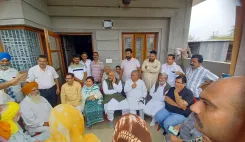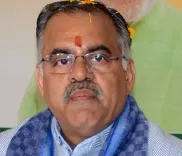Why is AHPI and IMA Hospital Board Urging Star Health to Restore Cashless Services?

Synopsis
Key Takeaways
- Immediate restoration of cashless services is crucial for patient welfare.
- The suspension of cashless services impacts patient access to timely healthcare.
- AHPI represents over 15,000 healthcare institutions in India.
- Patient choice is restricted due to delays in hospital empanelment.
- Open communication between hospitals and insurers is essential for patient trust.
New Delhi, Sep 15 (NationPress) Amid ongoing turmoil for numerous patients facing significant challenges at healthcare facilities, the Association of Healthcare Providers of India (AHPI) and the Indian Medical Association Hospital Board urgently called for Star Health and Allied Insurance to promptly reinstate cashless services for policyholders.
The AHPI expressed concern that many associated hospitals are experiencing a critical predicament as Star Health Insurance has suspended cashless services, compelling hospitals to accommodate frustrated and anxious patients who are abruptly stripped of the fundamental benefit of cashless treatment.
According to information from AHPI, cashless services have been arbitrarily halted in several hospitals, including Manipal Hospital - Delhi and Gurugram, Max Hospitals - North India, Metro Hospital - Faridabad, Medanta Hospital - Lucknow, and Rajiv Gandhi Cancer Hospital - New Delhi, among others.
Hospitals and nursing homes affiliated with the IMA Hospital Board echoed these concerns.
Moreover, the AHPI accused Star Health of decelerating or entirely ceasing the empanelment of certain hospitals, restricting patient access to cashless services. This list includes Fortis Hospital in Manesar, Max Hospital in Dwarka, Medanta Hospital in Noida, etc.
Such delays in empanelment are constraining patient options and compelling many families to resort to the reimbursement process, which undermines the essence of health insurance.
“AHPI firmly demands the immediate restoration of cashless services to all impacted hospitals, protecting patients from both financial and emotional distress, and the expedited empanelment of new hospitals, ensuring patients can access care throughout India without interruptions,” stated the Association, representing over 15,000 healthcare institutions nationwide.
“Patients purchase health insurance with the clear expectation of receiving cashless treatment at reputable hospitals. It is unjust for insurers to withhold this essential service after collecting premiums, forcing families to scramble for funds at the time of hospitalization,” remarked a joint statement from Dr. Girdhar Gyani, Director General of AHPI, and Dr. Abul Hasan, Chairman of the IMA Hospital Board.
“Patients deserve seamless access, and hospitals deserve equitable treatment as service providers. Star Health must urgently act to restore trust and ensure that its insured members are not penalized for selecting the hospitals best equipped to meet their medical needs,” the statement further emphasized.
Earlier, on September 12, the AHPI issued an official notice to Star Health regarding “unfair practices” and warned of potential suspension of cashless services by member hospitals by September 22.
In response, Star Health criticized AHPI for issuing “threats of suspending cashless services in a manner that is arbitrary, lacking clarity, or actionable details.”
Meanwhile, the General Insurance Council extended its support to Star Health, urging AHPI to retract its threat of disrupting cashless services, assuring that policyholders' access to healthcare remains fully protected.
Denying the allegations, AHPI asserted that “its decision was neither arbitrary nor unilateral, but a necessary reaction to the unilateral and arbitrary actions of Star Health Insurance in de-empaneling hospitals and ceasing cashless services.”





